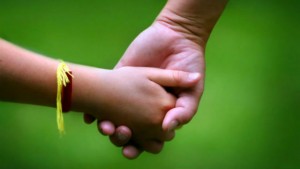Home » Commentary » Opinion » Commissioner Tim’s Blind Eye
· Quadrant Online
 According to Race Discrimination Commissioner Tim Soutphommasane, Australia remains a racist country because ethnic minorities are not perfectly statistically represented in the upper ranks of politics, the media, and business.
According to Race Discrimination Commissioner Tim Soutphommasane, Australia remains a racist country because ethnic minorities are not perfectly statistically represented in the upper ranks of politics, the media, and business.
However, by calling for race-based quotas to end ‘Anglo-Celtic domination’ in these fields and ensure equality of outcomes based on racial-background, Soutphommasane is trivialising the issue of racism.
The real racism we confront in Australia is not how many ‘Asian’ CEOs there are. It is the reverse racism Indigenous children are subjected to in relation to child protection.
Indigenous children who need to be removed from their parents are treated differently to non-Indigenous children in ways that compromise their well-being and prospects in life — a form of racial discrimination about which ‘human rights’ activists like Soutphommasane are silent.
Thanks to our egalitarian values and modern attitudes towards race, we do not have anything that resembles a racial underclass denied equality of opportunity in this country — with one glaring exception.
The exception is the most disadvantaged Indigenous Australians who predominately live in rural and remote ‘Homeland’ communities.
Established in the 1970s under the policy of Aboriginal Self-Determination as implemented by the Whitlam government, the Homelands experiment in separatist development was designed to allow Indigenous people to return to their ‘country’ to live on their traditional lands and practice traditional culture.
In reality, however, these communities have long suffered from a well-known array of social problems — despite the billions spent on Indigenous programs and support services — including major concerns for child welfare due to high levels of child abuse and neglect.
As a result, Indigenous children are removed from their families at 10 times the rate of non-indigenous. Of the 45,000 children living into care across Australia, one-third are indigenous, and total more than 6% of all Indigenous children.
What is less well-known is how Indigenous disadvantage – appalling social outcomes in health, housing, education, and employment concentrated in rural and remote communities – is perpetuated by Indigenous-specific child protection policies.
Under the Aboriginal Child Placement Principle (ACPP) practiced in all states and territories, the preferred option is to place Indigenous children into ‘kinship care’ with relatives or local community members in the name of ensuring children maintain contact with traditional culture.
This is consistent with the separatist principles of self-determination. Yet the complying with the ACCP means that the priority given to ‘culture’ can outweigh child welfare concerns.
In Indigenous communities in which there are more maltreated children needing care than there are functional adults capable of providing suitable homes, children can end up being placed in accordance with the ACPP in unsafe kinship placements that do not meet basic standards, and into which non-Indigenous children would not be placed.
As the last inquiry into child protection in the Northern Territory (the 2010 Bath Report) found, the ACCP had justified “Aboriginal children in care receiving a lesser standard of care than non-Aboriginal children.”
These findings have been echoed by the recent evidence given at the Western Australian coroner’s inquiry into high rates of Indigenous youth suicide.
The common threads in 13 cases of Aboriginal children and young people who killed themselves between November 2012 and March 2016 in the Kimberley region include family homes featuring alcohol abuse and domestic violence; long histories of safety concerns ranging from chronic neglect of basic needs to sexual abuse; and “frequent moves between households of various family members and guardians”.
This is to say that, due to the ACPP, Indigenous children are taken out of the frying pan of family dysfunction only to be placed back into the fire of broader community dysfunction.
Recognising these problems, and the tragic consequences for many children, the South Australian government recently proposed an amendment to the state’s child welfare laws that would have enabled Indigenous children to escape being caught up in the present system.
The plan was to remove the application of the ACPP if an Indigenous child made an “informed choice” not to identify as Aboriginal in relation to placement decisions. This would, it follows, have allowed Indigenous children to be placed with safe and suitable non-Indigenous foster carers outside their communities.
However, the government dropped this provision from the new child protection act passed this month in response to protests by offended Aboriginal groups, who nonsensically argued that allowing children the right to opt-out of the ACPP “reeks of forced assimilation”.
The emotive claim that upholding the ACPP will prevent another Stolen Generation may look noble. But denying the most vulnerable children in the nation the freedom to choose to leave Indigenous communities — such as the notorious APY lands in South Australia — is deeply inequitable, and locks them out of accessing the benefits and opportunities of life in mainstream society that all other Australians take for granted.
Continued compliance with the ACPP is nothing less than a recipe for trapping another lost generation of Indigenous children in dysfunctional communities, and keeping open the gaps of Indigenous social outcomes that remain a blot on our proud national record of delivering a fair go for all.
We should take the issue of racism seriously because racism is inconsistent with the nation’s core values. Eradicating Indigenous disadvantages is the number one social challenge we face. Recognition of Indigenous children’s right to relocate, if they so wish, would protect their human right to equality of opportunity regardless of race.
A Race Discrimination Commissioner serious about eliminating real race-based social disparities should stop fretting about ‘non-Anglo’ CEO numbers, and start focusing instead on fixing Australia’s highly discriminatory child protection regime.
Jeremy Sammut is a Senior Research Fellow at the Centre for Independent Studies and author of The Madness of Australian Child Protection.
Commissioner Tim’s Blind Eye